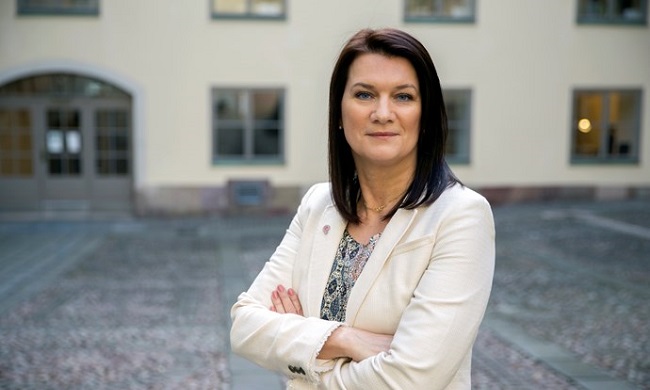Sweden makes it easier for developing countries to export

Linde writes in this commentary that Sweden wants to trade with developing nations
Photo: Kristian Pohl/Government offices
Large wooden barrels were loaded onto ships, barrel after barrel. They were lined up in rows and stacked on top of each other. The contents smelled slightly rank, but they were nonetheless valuable. Three hundred years ago, herring was more than something we ate at midsummer or Christmas. In the 18th century, herring was in fact one of Sweden’s largest exports. Sweden has long been dependent on exports, and exports have become increasingly important to us. By selling everything from fish, wood and iron to 5G equipment, medicines and climate-smart buses, we can create jobs and build a stronger society.
We want more countries to be given the opportunity to trade with other countries. For this reason, the Government is now bolstering the capacity for our partner countries to be able to trade with Sweden through an initiative by Open Trade Gate Sweden (OTGS), which provides export-related information and support to developing countries. The aim is for more companies from developing countries to successfully export goods to Sweden and thus create more jobs and fight poverty.
Inclusive growth is crucial to creating economic, social and environmental sustainability – and to meeting the goals of the 2030 Agenda. Developing countries’ trade is far too low, especially that of the least developed countries, whose share of world trade is below 1 per cent.
By linking our trade policy with our international development cooperation policy, we can achieve more. In many of our partner countries, our development assistance helps to increase growth and create more productive sectors. One example is in Ethiopia. Through our bilateral strategy, Sweden is working to increase productivity in the agricultural sector. Due to the country’s heavy dependence on agriculture and its low productivity, the rural population in particular is vulnerable to climate change and natural disasters. By increasing productivity, we make people less vulnerable to climate change and create opportunities for increased exports.
But increased productivity must go hand in hand with sustainable development. During this electoral period, the Government will enhance its action for biodiversity in international development cooperation. By helping our partner countries to produce more environmentally sustainable products, we can meet an increased demand for organic products and, at the same time, help more countries make the sustainability transition.
But lower customs duties are not enough to increase the participation of developing countries in global trade. Many developing countries lack the necessary capacity and technology. This is also why support is needed to be able to reap the benefits of trade. The Government is therefore working to promote free and fair trade through development cooperation as well. Since Sweden knows that economic development and development cooperation are linked, we also contribute financing to trade-related aid initiatives. More countries should be able to become financially independent and grow stronger. Last year, we contributed USD 3.7 billion to Aid for Trade, a WTO initiative that helps developing countries, particularly the least developed countries, to build their trade capacity and benefit from trade.
We now want to take another step to make it easier for developing countries to export to Sweden. The National Board of Trade’s OTGS currently provides information and training on customs duties, charges, rules and requirements to facilitate trade and increase exports from developing countries to Sweden and the EU. The Government has tasked the National Board of Trade with broadening the scope of OTGS activities to better connect exporters with the Swedish market. There is a great demand for information and initiatives that increase exporters’ knowledge of and access to the Swedish market. The Government is making it easier for developing countries to find counterparts in Sweden with a demand for their products so that deals are actually struck.
This will also strengthen and streamline our development cooperation initiatives in other areas. It also fits in well with the work of building broader relationships with developing countries by finding synergies between different policy areas. And this is something that our partner countries often ask for.
The Government’s initiative is good for our partner countries – and it is good for Sweden. It shows that we stand up for free and fair trade and for the integration of developing countries into the global trading system.
Ann Linde, the writer of this piece is Sweden’s Minister for Foreign Trade
Swedish Government

